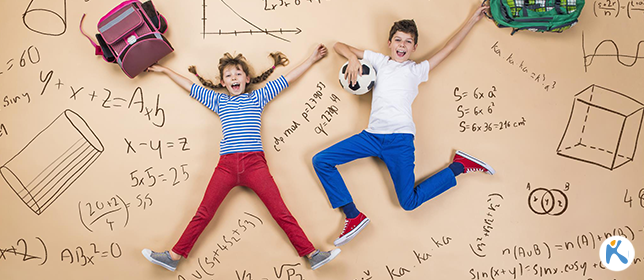Language and Memory and Movement, Oh My!

Language skills, executive functioning, and working memory are all fundamental parts to a student’s success, in and out of the classroom. In the early stages of development, children’s motor skills, language acquisition, and executive functioning are interdependent and correspond to their age. In other words, a child begins to build vocabulary at the same time as she develops control over hand and body motions.
Like strengthening the body’s core muscles, training the brain to remember anything takes time and practice. Children with learning difficulties may require different memory training techniques that are tailored to their specific needs. With Kinems’ games, sensory and working memory can be trained with ELA related learning activities designed by specialists from an early age to ensure a successful academic future.
Check out these three games to see how you can help children enhance memory, attention, organization, planning, and execution:
Drumory is an engaging game that focuses specifically on audio and visual memory. Drumory improves echoic memory through the concept of the phonological loop. When one repeats a list or a pattern in her head over and over again for the purpose of remembering, she is sub-vocally rehearsing the sound to commit it to memory, i.e. the phonological loop. This is exactly what students are practicing as they play Drumory, remembering the sequences of colors and sounds, and then reproducing them.
On the surface, UnBoxIT seems like a simple memory matching game that practices hand-eye coordination. The student holds her hand over a box to reveal its contents, and then tries to remember which box on the board contains the same item or word. While the child is playing the game, she is improving her spatial awareness, practicing her verbs or adjectives (depending on the game setting), and also sharpening her memory. The student has to recall not only what was inside the box, but also the box’s location on the board in relation to its hidden pair, thus promoting organizational skills. Furthermore, UnBoxIT can enhance vocabulary skills, since it helps stimulate classroom conversation. Teachers can ask their students questions like, “Where do we commonly find this item?” or, “If you had one of these, who would you give it to?” All three areas in need of improvement are being addressed, and the student it also prompted to think of real world applications.
Melody Tree trains memory and spatial awareness in a similar fashion, but also incorporates auditory stimuli. Instead of matching words or images, students must match identical sounds, such as instruments, animals, letters, etc. Like UnBoxIT, it includes the option of adding distractions to the game play, with the goal of training students’ minds to focus on the significant information and improve their concentration.
With these games and more, Kinems not only offers solutions to the difficulties students may face in auditory short-term memory, non-verbal memory, visual memory, working memory, etc., but also provides teachers with unique opportunities to monitor students cognitive progress and connect standard-based classroom activities with interactive game play.